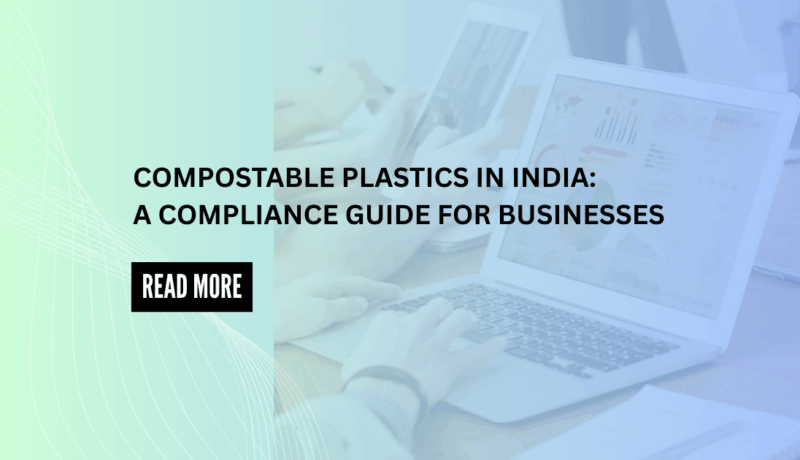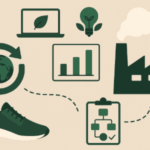
Compostable Plastics in India: A Compliance Guide for Businesses
Packaging is one of the most significant recurring expenses for businesses across industries—from food and beverages to retail, e-commerce, and FMCG. It not only protects and preserves products but also shapes customer perception and brand identity. Yet, despite being such a critical part of operations, packaging is still largely made up of multiple layers of single-use plastics. These materials are cheap and convenient, but they create long-term environmental and regulatory challenges, with mounting pressure from both consumers and governments to find sustainable alternatives.
With demand for sustainable packaging on the rise, compostable plastics are emerging as one of the most practical options to phase out single-use plastics in the near future. Unlike regular plastics, compostable plastics are designed to break down naturally into carbon dioxide, water, and biomass under controlled composting conditions. This means they don’t leave behind toxic residues when composted properly— making them an eco-friendly solution for packaging, cutlery, and daily-use items.
Why Are They Becoming Popular?
- The ban on single-use plastics is forcing industries to look for safer alternatives.
- Consumers want packaging that doesn’t harm the planet.
- The government is pushing circular economy practices under Mission LiFE.
- Global export markets demand certified compostable materials, opening new business opportunities.
But Here’s the Catch… just saying “biodegradable” or “eco-friendly” is not enough. In India, strict rules ensure that only certified compostable plastics make it to the market. Let’s break it down 👇
Compliance & Certification – What Businesses Must Know
If you’re a business looking to manufacture, import, or sell compostable plastics in India, you can’t just slap a “biodegradable” label on your product. You need to follow a step-by-step compliance process to prove credibility.
1. Get Registered
- Manufacturers: Must get registration from the State Pollution Control Board (SPCB/PCC) to manufacture compostable plastics.
- Importers/Sellers: Must ensure their foreign suppliers are also CPCB-certified and provide valid registration and authorization letters.
2. Report Every Six Months
- Manufacturers must submit six-monthly reports on CPCB’s online portal (“Compostable Plastics – E Certification”).
- Reports should include:
- Raw material procurement
- Product sales
- GST details
3. Disclose Raw Materials & Manufacturing Process
- Mention the source of raw materials (local/imported).
- Provide a process flow diagram showing input → production → final product → waste streams.
4. Product Testing at CIPET
Every compostable product must be tested as per Indian Standards IS/ISO 17088. The tests include:
- Disintegration
- Aerobic biodegradation
- Compost testing
- Heavy metal analysis
Without this test report, your product cannot be marketed as compostable.
5. Environmental Clearances
- Obtain valid Consent Orders (Air & Water) from SPCB/PCC.
- Share details of pollution control measures for air, water, and solid waste.
6. For Importers & Sellers
- Provide supplier details (country of origin, address).
- Share SPCB/CPCB registration of the manufacturer.
- Upload authorization letters from CPCB-certified manufacturers.
- Submit test reports as per IS/ISO 17899: 2022.
Why Compliance is Not Optional
- Legal protection: Avoids fines, bans, or product seizures.
- Customer trust: Certification proves your product is genuinely compostable.
- Market access: Certified products are eligible for large-scale retail and exports.
- Sustainability goals: Positions your business as a leader in eco-friendly solutions.
Final Thoughts
The compostable plastics industry in India is booming, but it’s also closely regulated. For businesses, compliance might feel like a maze of forms, reports, and tests, but it’s ultimately your climate credibility badge.
If you’re looking to enter this space — as a manufacturer, importer, or seller — focus on CPCB registration, CIPET testing, and six-monthly reporting. Done right, it not only keeps you compliant but also makes your business future-ready in a world that’s rapidly moving towards sustainability.
Ready to start making more sustainable product decisions? Explore Untrash to understand the real environment impact of your products and be future ready for all environmental compliances!


